Several years ago, I took a 7-day silent retreat. The first thing my spiritual director instructed me to do on retreat was to sleep. I was surprised, to say the least. But I decided I should place my doubts aside and do as instructed. So I slept. I took naps and I slept 8 hours at night. I had no idea I was as tired as I was. I had pushed myself and kept my task list going relentlessly. I thought I was being a good person by working hard. Being quiet and sleeping created a whole new kind of energy for me. Later in the week, I began writing down all the insights and encouragement I was gleaning from the experience. I still refer to this list as a sort of compass for my life. Who knew sleep could be so important?
In the U.S. many of us sleep too little. The average is 6.8 hours per day. Sleep researchers suggest that 7-9 hours daily is a healthy range. A lack of sleep has been associated with health problems and cognitive impairment. Our brains use our sleeping hours to do a kind of housekeeping, clearing away neurotoxins and detritus in the system. Our nervous system resets so we are fresh to meet new stressful situations. We organize and store memories and consolidate learning. There’s a lot happening when we rest. Perhaps this is why the wisdom of rest was written into the Bible’s instructions for the early Hebrew people. Rest was an important part of living a godly life.
Depression can cause people to sleep too much or too little. Creating a healthy cycle of rest and work is part of a good plan to improve mood stability. For 2019, consider tracking your sleep as a part of your resolutions for healthy living. Give your brain a chance to reset and prepare for the important engagements of your life. When circumstances prevent you from good rest, remember to be gentle with yourself. Taking 10 deep breaths can help. A 20-minute nap can replenish you. Allow yourself to strategize for more rest soon.
